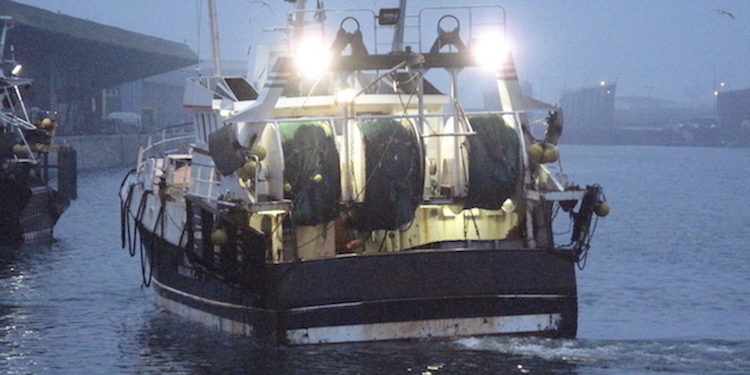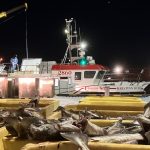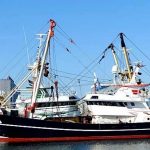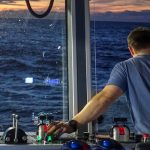Europêche and EAPO have penned an open letter to the European Parliament, voicing their concerns about the EU Technical Conservation Regulation.
The two organisations representing European fishermen state that they broadly welcome the Commission’s novel approach to technical measures contained in its proposals on the conservation of fisheries resources and the protection of marine ecosystems through technical measures 2016/0074(COD).
‘The rules and requirements contained in the current technical measures framework regulation, Regulation (EC) No. 850/98, have proven to be complex and often very difficult to achieve,’ Europêche states. ‘The existing regulation has been difficult for our fishers to understand and it has been difficult to enforce. In some respects, it has generated perverse outcomes, most notably by generating a pattern of regulatory discards. Some important parts of Regulation 850/98 are incompatible with the CFP basic regulation, Regulation (EU) 1380/2013, and specifically, the EU landing obligation. Most specifically, the current regime provides an impediment to the evolution of technical solutions as fishing vessels find ways reduce their unwanted catch to comply with the landing obligation.’
‘The Commission’s proposal offers a radical break from the failures resulting from the current system, providing the prospect of a more dynamic, flexible approach, compatible with the overall policy objectives within the CFP basic regulation. This is achieved by making provision for the adoption of fisheries specific technical rules, where these are necessary, at regional seas level. Central to that approach is the alignment of the proposal with Article 18 of the CFP regulation. This provides a legal basis for Joint Recommendations on technical measures to be made by regionally cooperating Member States and to be adopted by the Commission through delegated acts.’
Europêche and EAPO have repeatedly called for a decisive shift away from micro-management, which they say fails in many respects to deal with regional nuances, instead recommending an approach focused on results and outcomes, within a system incorporating safeguards.
‘There remain some aspects of the Commission’s proposal that lack clarity or precision but these lower level concerns should not detract from understanding our support for the Commission’s general approach,’ Europêche president Javier Garat said.
‘As it is follows from the Framework Regulation No 1380/2013, the technical measures framework applies for the conservation and sustainable exploitation of marine biological resources. This includes all stocks being fished. However, it stretches further than this, as technical measures also have a role to play to minimise the negative impact of fishing activities on marine biodiversity and marine ecosystems,’ he said.
‘Europêche and EAPO support the inclusion of technical measures that provide protection for these marine ecosystems, species and habitats, to be built upon through regionalised decision-making and consultation of stakeholders. We recognise that providing for such measures is also in line with the CFP objective of coherence with Union environmental legislation.’
The letter to the European Parliament lists what Europêche and EAPO see as the strengths of the Commission’s proposal, with scope for responsive, adaptive management through regionalised policy formulation, avoiding the need for co-decision on many detailed technical rules, and the potential for a shift away from complex prescriptive rules towards a results- based management approach, as well as a framework that is open to a bottom-up approach, enabling those with appropriate expertise to participate in the development of solutions more suited to local conditions.
‘The EU fishing industry has identified a number of concerns that the Commission’s proposal, insofar as it deals with the application of metrics (targets), would reintroduce an element of catch composition. We do not believe this target to be realistic and are extremely doubtful whether the target of 5% will be the right figure in all fisheries,’ Europêche states.
‘This is a new and untested part of the proposal and we are of the view that it needs more thought and assessment to determine if a common threshold can be used for all fisheries or whether such a threshold should be determined at a regional seas level in close cooperation with stakeholders. We do not see how this can go hand in hand with the introduction of the landing obligation. We also recognise that an effective system of monitoring by Member States will be required to ensure this target is being met. Europêche and EAPO agree that monitoring and targets are prerequisites for an effective results-based approach, but should be dealt with in the Framework regulation. There is clearly room for clarification of the detail would work in practice.’
‘This letter may be considered as a timely intervention to signal our support for the essential approach contained in the Commission’s proposal,’ EAPO president Pim Visser commented. ‘To voice our concern that as this proposal passes through the legislative process, we should not lose a coherent and effective approach to technical conservation that escaped us with Regulation 850/98.’









